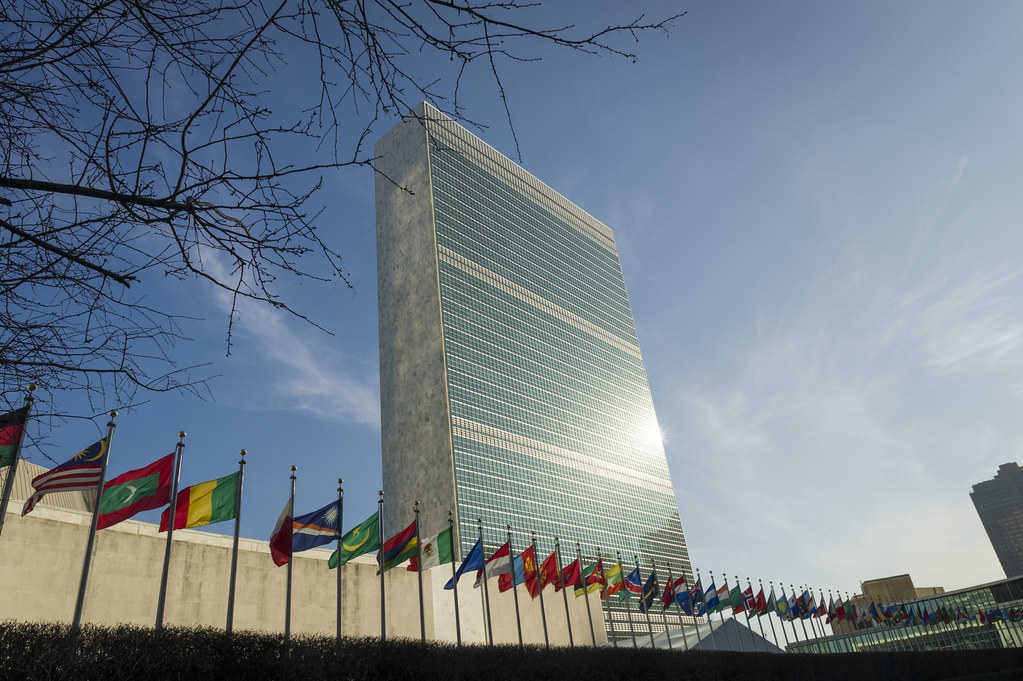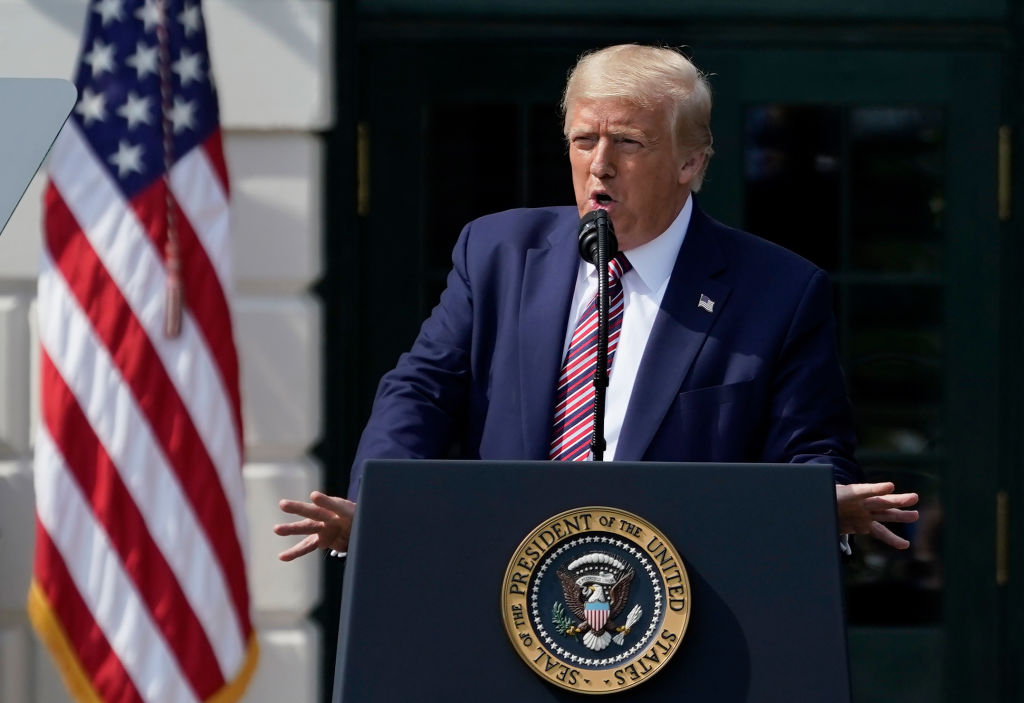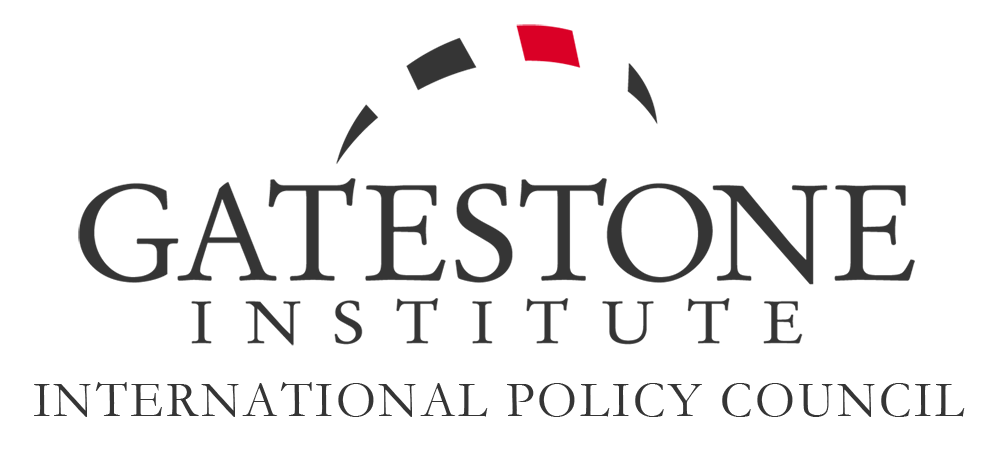
The systematic discrimination of the United Nations is too obvious to ignore. There is simply a whopping international double-standard here on what passes as institutional racism and what does not -- and it needs to be acknowledged. Pictured: The Secretariat Building at United Nations headquarters in New York. (Image source: UN)
|
by Judith Bergman • July 19th
There is simply a whopping international double-standard here on what passes as institutional racism and what does not -- and it needs to be acknowledged.
At the very least, people might question whether an organization that has made discrimination against one country in the world one of its operating principles... is worth the exorbitant cost. The United States, for instance, as the organization's single largest donor, in 2018 funded the UN to the tune of $10 billion.
At a minimum, instead of paying a mandatory "slightly less than one-fifth of the body's collective budget" every year, the US -- and the UN -- would fare far better if the US paid for what it wanted and got what it paid for. At present, the UN has long ceased being a force for good and is being used, first, to prop up its majority of un-transparent, unaccountable anti-democratic despots, and second, to perpetuate conflicts -- largely at the US taxpayers' expense.
All those who truly care about the eradication of discrimination and racism should ask themselves why, if racism is unacceptable everywhere else, it should still be a matter of course at the UN.

The systematic discrimination of the United Nations is too obvious to ignore. There is simply a whopping international double-standard here on what passes as institutional racism and what does not -- and it needs to be acknowledged. Pictured: The Secretariat Building at United Nations headquarters in New York. (Image source: UN)
As accusations of "institutional" racism in organizations, professions, universities and cultural institutions continue to make the headlines, no one is calling out the institutional racism of the United Nations (UN).
What is institutional racism? The first entry on Google tells you, "Institutional racism is a form of racism that is embedded as normal practice within society or an organization".
If you google "racism", a Google dictionary defines it as:
"Prejudice, discrimination, or antagonism directed against a person or people on the basis of their membership of a particular racial or ethnic group, typically one that is a minority or marginalized".
by Amir Taheri • July 19, 2020 at 4:00 am
In elite circles, notably in Europe, Trump-bashing is regarded as a sign of intelligence and cursing him a duty of progressive humanists.
In Britain, Prime Minister Boris Johnson campaigned and won on a Trumpian platform of national identity and industrial revival. Even Germany's Angela Merkel, a sneaky critic of Trump, now talks of the need for a bigger defense budget, curbs on globalization and Russia as a threat.
Last month, however, he [French President Emmanuel Macron] adopted a Trumpian stance against the Black Lives Matter (BLM) lava that had reached France. He said he would not allow French history to be re-written and the police to be insulted; nor would he let anyone topple statues or change street names. He rejected what he called "separatism", attempts at conjuring double-barrel identities such as "African-French".
In his idiosyncratic, not to say gauche, style Trump attacked domestic and foreign policies that no longer worked. He also tried to rebalance globalization to halt the long-term de-industrialization of the United States. Prior to the coronavirus crisis, his administration had one of the best records in job creation and the reduction of poverty among black Americans.

US President Donald Trump has tried to rebalance globalization to halt the long-term de-industrialization of the United States. Prior to the coronavirus crisis, his administration had one of the best records in job creation and the reduction of poverty among black Americans. So far, he is also the first American president in a century not to have led his country into a new war. (Photo by Drew Angerer/Getty Images)
By all accounts, Donald J Trump is an atypical character among the men who have served as President of the United States. That maybe the reason for the atypically hostile, often violent, sentiments he provokes among political foes.
In elite circles, notably in Europe, Trump-bashing is regarded as a sign of intelligence and cursing him a duty of progressive humanists.
In a recent panel on BBC television I found myself ostracized by three American and European colleagues, plus the presenter, for suggesting that maybe, just maybe, Trump was not responsible for all that was wrong with the world. Hardly a day passes without the mainstream media in Europe, not to mention the US, indulging in a frenzy of Trump-bashing.
Inside the US itself, Trump-bashing has evolved into a rite of passage among elites who curse him as a vulgar tribune for unwashed and uneducated plebes.
|
|
|



No comments:
Post a Comment